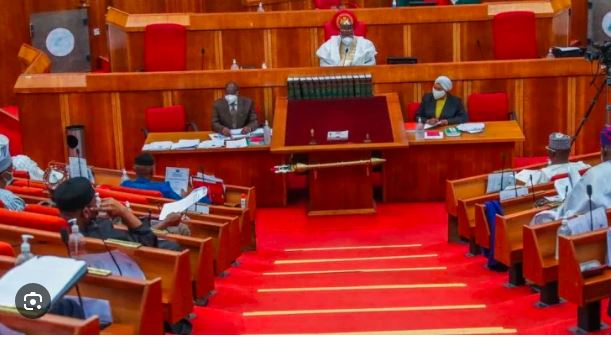
Following a petition submitted on behalf of 73 communities of Obiafu, Soku to Bonny in Rivers, seeking compensation for the acquisition of right of way by the company.
A resolution by the Senate after an investigation by its Ethics, Privileges, and Public Petitions committee found out that 34 communities out of the 74 were yet to be compensated.
The Senate in its resolution dated October 4, 2022, directed the company to pay the 34 communities within 60 days.
Displeased by the order, the company in originating summons dated February 13, 2023, sued the Senate, Senate President, National Assembly and Michael Ajileye.
The company prayed the court to determine whether by the provisions of the 1999 Constitution (as amended), Section 19 of the Oil Pipelines Act, and all other relevant legislation, the Senate or any of its committees, agencies or members have the powers to entertain, act on and or deal with legal claims, and or adjudicate or determine a legal right created under the Act relating to compensation for petroleum or any other activities, or any other law based on a petition submitted against the plaintiff on behalf of 73 communities of Obiafu, Soku to Bonny, in Rivers State?
Other reliefs sought by the company partly read, ” Whether the 1st defendant’s resolution dated 4th October 2022, mandating the plaintiff to pay 34 communities and other individuals in Rivers State the sum of N18,374,199,727.00 within a period of 60 days is constitutional, legal, lawful, valid, binding, and has any legal effect or force of law? ”
However, the Senate in its counter affidavit argued that citizens and non-citizens of the country had the liberty to approach the upper chambers through petitions or public hearings for any constitutional issues or issues bothering on civil rights, security of the country, welfare of citizens and governance in general.
Delivering judgment on the matter, Justice Inyang Ekwo said the defendants acted ultra vires.
Ekwo also declared that by the provisions of the 1999 Constitution, the Senate and its Committee on Ethics, Privileges and Public Petitions and other committees were not empowered by law to compensate or pass any binding verdict decision, or resolution, arising from the petition.
The judge also restrained the defendants from further inviting, summoning, or issuing warrants of arrest against the company, its officers, and or staff in respect of the petition or giving legal effect to the resolution.





